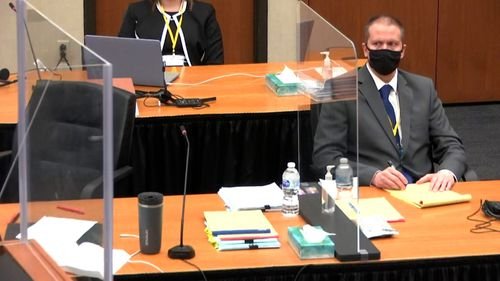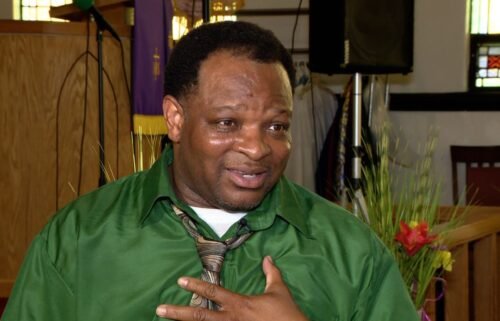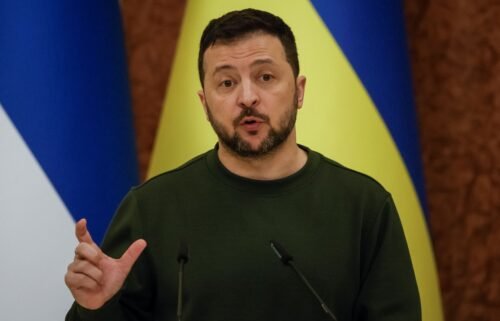Judge rules Derek Chauvin murder trial will continue and stay in Minneapolis

A judge in Minneapolis Friday rejected defense motions to postpone and relocate Derek Chauvin’s murder trial in the death of George Floyd.
Judge Peter Cahill’s rulings came one week after the city agreed to pay $27 million to Floyd’s estate — an announcement defense lawyers argued prejudiced their client in the middle of jury selection. Separately, the judge ruled to allow limited evidence from 2019 encounter between Floyd and the police.
The case moved closer to trial when a woman was selected as the 13th juror after the judge ruled on the motions. Cahill on Friday afternoon said “we’re going to try and pick two more” jurors. Jury selection will continue Monday.
The Minneapolis city council unanimously voted last week to settle the lawsuit with Floyd’s family.
The public announcement of the settlement in the middle of jury selection infuriated Chauvin’s defense, who argued that it prejudiced jurors against their client. Attorney Eric Nelson asked Judge Cahill to move and delay the trial in light of the publicity.
Nelson said it was “perplexing” that the settlement was announced during jury selection.
“Unfortunately I think the pretrial publicity in this case will continue no matter how long we continue it,” Cahill said Friday morning in announcing his decisions.
“And as far as a change of venue, I do not think it that would give the defendant any kind of a fair trial beyond what we are doing here today. I don’t think there’s any place in the state of Minnesota that has not been subjected to extreme amounts of publicity on this case.”
The defense requests for a trial delay and change of venue came on Monday, the start of the second week of jury selection in the trial of Chauvin, the former Minneapolis Police officer accused of killing Floyd on May 25, 2020.
Floyd’s final moments, recorded on video, led to widespread protests against police brutality and racism under the Black Lives Matter banner as well as incidents of unrest and looting.
Minnesota Attorney General Keith Ellison, who is leading the prosecution, said in a statement Friday the “court has taken careful, considered steps to mitigate the effects of pre-trial publicity that make a continuance and change of venue unnecessary.”
The jurors “have been carefully screened for impartiality in the face of inevitable pre-trial publicity not only in Hennepin County, but in every part of Minnesota,” the statement said.
The trial is expected to start March 29, followed by testimony that could take about four weeks.
Chauvin has pleaded not guilty to second-degree unintentional murder and second-degree manslaughter charges. He has also pleaded not guilty to third-degree murder, a charge reinstated in the case on March 11
Cahill also decided on Friday to admit limited evidence of a May 6, 2019, encounter between Floyd and police.
Floyd’s 2019 arrest came a little more than a year before Chauvin knelt on Floyd’s neck for nearly eight minutes as Floyd told Chauvin and three other officers he couldn’t breathe.
Cahill ruled that a portion of a body camera video from the 2019 arrest that shows an officer approaching the car, a photo of pills in the crack of the seat and comments Floyd made to a paramedic about what drugs he took and the timing of the drugs are admissible.
“The whole point here is we have medical evidence on what happens when Mr. Floyd is faced with virtually the same situation. Confrontation by police at gunpoint, followed by a rapid ingestion of some drugs,” the judge said.
Accounts of Floyd’s emotional behavior and comments he made about his mother in 2019 will not be admitted.
Nelson argued the 2019 arrest should be admitted under the rules of evidence, saying it shows Floyd had a common plan, habit, and intent and didn’t make a mistake when he took drugs while being apprehended by police.
“There is a modus operandi to conceal drugs in part by ingesting them, but also of doing so in a very stressful circumstance — that is being pulled out of a car at gunpoint and handcuffed,” Cahill ruled.
In 2019 Floyd was taken to the hospital and not jail.
A CNN search through Hennepin County District Court records shows that he was not charged in relation to the 2019 arrest.
“The entire arrest in May of 2019, just over a year prior to Mr. Floyd’s death, is remarkably similar in multiple ways, from one to the next,” Nelson argued earlier this week.
Prosecutors said the incidents were quite different, noting that in 2019 Floyd was not forced into a police vehicle, officers got him medical help and he survived the arrest.
According to the 2019 police report, Floyd was a passenger in a car stopped in by police.
“Floyd was moving all around and acting extremely nervous and would not listen to my commands,” wrote Officer Scott Creighton in the report. “I continued to order him several times to stop moving around and to see his hands…. Floyd had also put something in his mouth and was attempting to eat them. He was informed to spit what he had in his mouth out, but had already ate them.”
Another officer wrote that Floyd appeared to be under the influence of drugs and told her he took multiple pills before his contact with police. The report did not mention follow up toxicology reports, and medical records either confirming or denying drug ingestion were not immediately available. It’s unclear if Floyd retained an attorney at the time.
After his death in 2020, an autopsy performed by the Hennepin County Medical Examiner’s Office showed Floyd had evidence of several drugs in his system including methamphetamine and fentanyl.
Nelson told the court this week that partially consumed pills containing methamphetamine and fentanyl along with Floyd’s DNA were found in the back of the police car where Floyd was initially placed in the 2020.
The drugs and DNA were recovered after a second search in January 2021, after the defense requested the car be searched again.
“It is kind of mind boggling that an extensive search was not done until January 2021,” said Cahill, who had ruled in August that the arrest would not be admitted into evidence.
Chauvin could face up to 40 years in prison for second-degree murder, up to 25 years for third-degree murder, and up to 10 years for second-degree manslaughter. The charges are to be considered separate, so Chauvin could be convicted of all, some or none of them.
Three other former officers — Thomas Lane, J. Alexander Kueng and Tou Thao — are charged with aiding and abetting second-degree murder and aiding and abetting second-degree manslaughter.
They are expected to stand trial this summer. All four ex-officers are out on bail.



